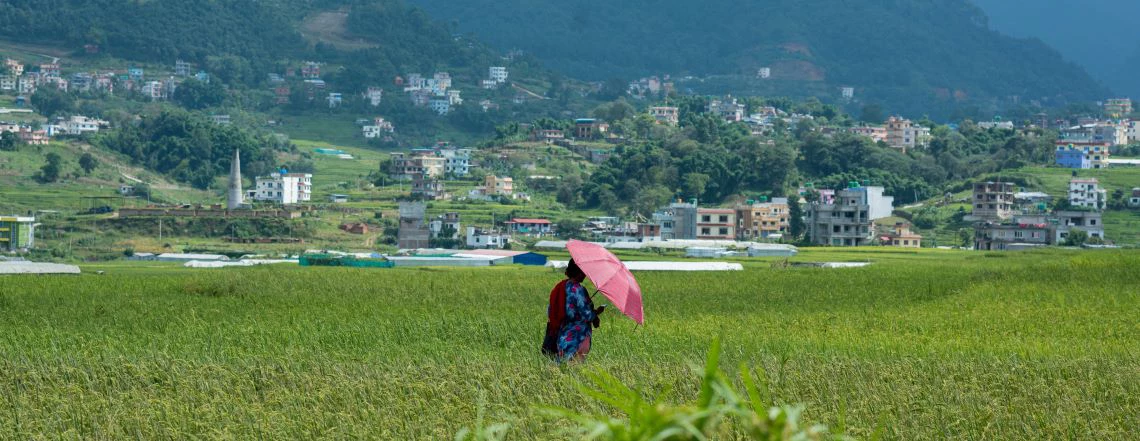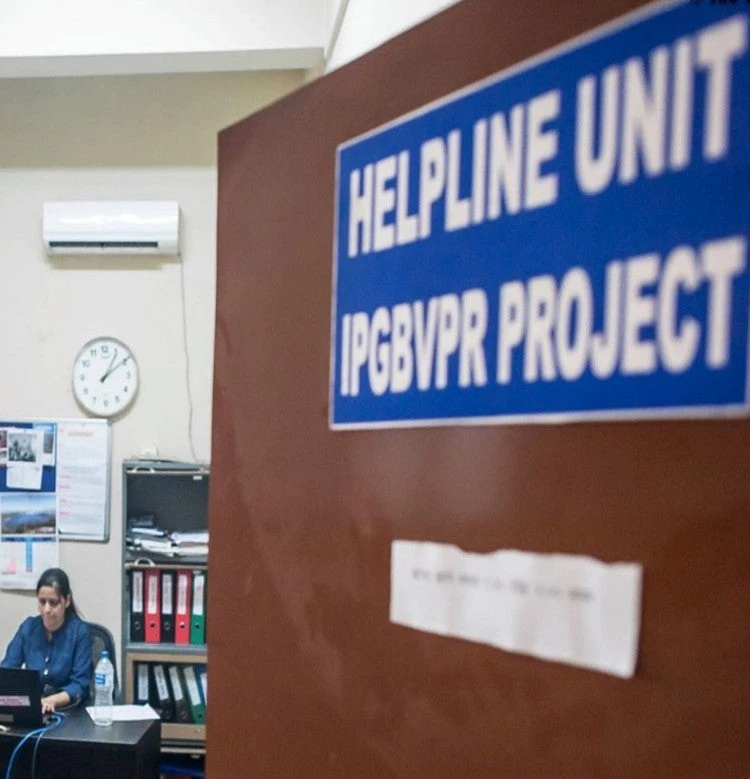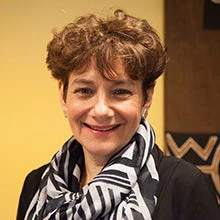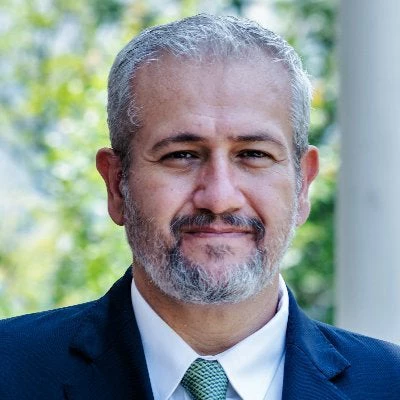 A woman in the fields in Nepal
A woman in the fields in Nepal
Each year, as we mark the 16 Days of Activism Against Gender-Based Violence Campaign, we join our partners to renew our commitment and step up our actions for the prevention and elimination of gender-based violence.
Gender-based violence is a major issue in South Asia, where a staggering two out of five women experience intimate partner violence (IPV). Only a few women seek any help or report the abuse.
This is a pattern of gender-based violence (GBV) that we see across the Maldives, Nepal and Sri Lanka.
In the Maldives, one in four women experience some form of violence in their lifetimes, and 60 percent do not seek support. In Nepal, 22 percent of women aged 15-49 experience physical violence since age 15, and 7 percent experience sexual violence. Sixty-six percent of these women do not seek help to stop the violence. And in Sri Lanka, one in five women experience intimate partner violence in their lifetimes and only 28 percent seek help.
Survivors of violence often hesitate to seek help due to social and cultural beliefs that result in victim blaming. They also often consider the violence to be “normal” or “not serious enough.” When survivors do seek support, they mostly opt to reach out to family and friends instead of to formal service providers.
Survivors of gender-based violence often hesitate to seek help; for those who do, service provision is sometimes unavailable or difficult to access in rural areas or remote regions.
For those who want to seek support, service provision is sometimes unavailable or difficult to access in rural areas or remote regions. Where services are available, there are often concerns around confidentiality and the judgemental attitudes of service providers. Moreover, lesbian, bisexual women, and transgender people experience rape and intimate partner violence with even fewer support services available.
Gender-based violence is preventable
Research shows that attitudes and behaviors with regards to GBV can change - albeit slowly. Change requires intensive interventions, following well-tested methodologies, a deep understanding of context, and implementing partners that are experienced in social norms programming and know the country and community context well. Since social norms and beliefs that uphold violence against women and girls are resistant to change, approaches need to go beyond the household or individual level to change perceptions and attitudes at the broader community level.
Since social norms and beliefs that uphold violence against women and girls are resistant to change, approaches need to go beyond the household or individual level to change perceptions and attitudes at the broader community level.
Programs like SASA! – or Together for Girls – which work with whole communities and households to change mind-sets and question the acceptability of violence are a good example of what can help. In Bangladesh, the World Bank financed Health and Gender Support Project in Cox’s Bazar teamed up with the United Nations Population Fund (UNFPA) team on the ground, to roll out SASA! among a highly vulnerable displaced population. Currently more than 400,000 girls and women are accessing services through the project.
While social norms programming will not be feasible everywhere, a lot can still be done to address GBV by strengthening the delivery of health care and psychosocial services, social services such as shelters, protection and legal support. It is critical for service providers to work together to support survivors in a coordinated manner.
This means putting in place effective case management – so that survivors can access the multisectoral services they need in a timely manner and are not further traumatized by having to repeat their stories multiple times.
In recent years, the World Bank has stepped up operations that support GBV response and supported client governments to make life-saving services available to survivors of violence.
In recent years, the World Bank has stepped up operations that support GBV response and supported client governments to make life-saving services available to survivors of violence.

Learning from Maldives, Nepal, and Sri Lanka
In the Maldives, the government established its first Gender Violence Prevention and Response hotline during the pandemic. COVID-19 led to a spike in domestic violence as well as social media conversations around the issue. The newly established 1421 hotline provides support to survivors to help them find the most suitable solutions and options for their particular situation.
A network of community committees (IBAMA committees) has been established by the Government of the Maldives in partnership with UNICEF. These committees provide much needed referral and protection services in remote atolls where they are often the main (or only) port of call for both women and child survivors.
The IBAMA committees are an example of the type of support that can be made available building on community resources and training paraprofessionals. The World Bank started its engagement on GBV in the Maldives in 2022, supporting the government to develop an integrated case management system to help ensure access to a set of key standardized services, along with other types of assistance.
The World Bank started its engagement on GBV in the Maldives in 2022, supporting the government to develop an integrated case management system
In Nepal, the World Bank is supporting the government to remove gaps in GBV service provision in remote parts of the country and at the municipal level . This will contribute to expanding services to end users. That will involve replicating the best practices of Nepal’s Khabar Garaun (Inform Us) 1145 helpline in selected municipalities across the country.
The World Bank is focusing on ensuring survivor’s access to health care, psychosocial services, legal aid, and safe spaces in Nepal . Increasing awareness of the availability of the services and building capacity of municipal staff to provide quality services will be an essential building block to sustain these critical services in the long run.
The World Bank is focusing on ensuring survivor’s access to health care, psychosocial services, legal aid, and safe spaces in Nepal.
In Sri Lanka, the government and civil society organizations have played an important role in making service provision on GBV more available across the country, including in remote rural areas. The ministry of women and child affairs has a tollfree national women’s helpline which provides counselling and legal support to victims of violence. The NGO Women in Need for example runs a trilingual 24-hour hotline and digital application to provide psychosocial, legal, and shelter support for survivors.
The organization works with the Ministry of Health to support one-stop crisis centers (Mithuru Piyasas) in state hospitals. These centers provide life-line services and are present in 30 hospitals across the country. During the COVID-19 pandemic, the World Bank supported Mithuru Piyasas to increase service provision for survivors of GBV – focusing particularly on raising awareness of available services, support domestic violence prevention efforts and building staff capacity. This year to mark 16 days of activism against GBV two CSOs launched a helpline designated to respond to complaints around cyber bullying and harassment.
In Sri Lanka, the World Bank supported Mithuru Piyasas to increase service provision for survivors of GBV – focusing particularly on raising awareness of available services, support domestic violence prevention efforts and building staff capacity
The government is seeking to pass a new bill on gender equality and women’s empowerment in order to improve responses to GBV and address other areas to increase gender equality within the country.
There is still a lot more to be done. Survivors of GBV need better access to quality multi-sectoral services that address their physical and mental health needs, and provide protection and safety in a confidential, comprehensive, survivor-centered, and respectful manner.
In Maldives, Nepal, and Sri Lanka, we will continue to support the governments and development partners to help make services available to the women and girls who need it the most.
In Maldives, Nepal, and Sri Lanka, we will continue to support the governments and development partners to help make services available to the women and girls who need it the most.



Join the Conversation